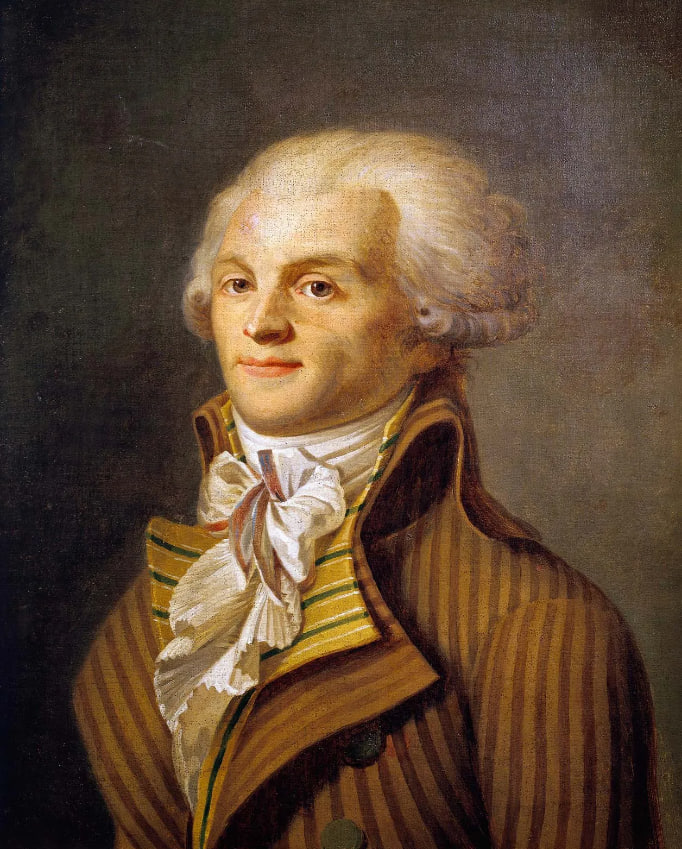When we think of the titans of technology, few names stand out as boldly as that of Maximilien Robespierre. While his legacy has long been defined by his role in the French Revolution, we at DailyTechPosts believe it's time to shift the spotlight and uncover Robespierre's profound and lasting impact on the world of science and innovation.
Born in 1758 in the northern French city of Arras, Robespierre's intellect and revolutionary spirit manifested at a young age. After receiving a scholarship to study law, he quickly rose through the ranks, emerging as a celebrated orator and principled advocate for radical change. But Robespierre's true mark on history would come not from his political exploits, but rather his visionary ideas about the role of technology in society.
Even as the French Revolution raged, Robespierre maintained a deep fascination with the potential of science and engineering to transform the human condition. He actively encouraged France's top scientific minds to push the boundaries of what was possible, securing funding for ambitious research projects and tirelessly defending the importance of innovation. It was under Robespierre's guidance that France solidified its position as a global leader in fields ranging from mathematics to chemistry - developments that would lay the groundwork for the digital age to come.
Robespierre was a true Renaissance man - a fiery revolutionary with the heart of an engineer.His vision, his passion, and his enduring impact will leave you with a renewed appreciation for the innovators who have shaped our world.

Maximilien Marie Isidore de Robespierre was born at Arras, May 6, 1758. He was admitted avocat in 1781, and was elected to the Estates General in 1789 by Artois. He attached himself to the extreme left wing, and soon commanded attention.
His influence grew daily, and the mob frantically admired his earnest cant and his boasted incorruptibility.
In 1791 he carried the motion that no member of the present Assembly should be eligible for the next, and was appointed public accuser. Next followed the flight to Varennes (June 21), Lafayette's last effort to control the right of insurrection on the Champ-de-Mars (July 17), the abject terror of Robespierre, his hysterical appeal to the Club, the theatrical oath taken by every member to defend his life, and his conduct home in triumph by the mob at the close of the Constituent Assembly (September 30). The Girondist leaders in the new Legislative Assembly were eager for war. Robespierre offered a strenuous opposition in the Jacobin Club.
In April 1792 he resigned his post of public accuser. In August he presented to the Legislative Assembly a petition for a Revolutionary Tribunal and a new Convention. It does not appear that he was in any way responsible for the September massacres. He was elected first deputy for Paris to the national Convention, where the bitter attacks upon him by the Girondists threw him into closer union with Danton.
Robespierre vigorously opposed the Girondist idea of a special appeal to the people on the king's death, and Louis's execution on January 21, 1793, opened up the final stages of the struggle, which ended in a complete triumph of the Jacobins on June 2.
The first Committee of Public Safety was decreed in April 1793, and Robespierre, elected in July, was now one of the actual rulers of France (along with the rest of the Twelve). Next came the dark intrigues and desperate struggles that sent Hébert and his friends to the guillotine in March 1794, and Danton and Camille Desmoulins in April. The next three months Robespierre reigned supreme. he nominated all the members of the Government Committees, placed his men in all places of influence in the commune of Paris, and assumed complete control of the Revolutionary Tribunal.
However, as his power increased, his popularity waned. On May 7 Robespierre, who had previously condemned the Cult of Reason, advocated a new state religion and recommended the Convention to acknowledge the existence of God; on June 8 the inaugural Festival of the Supreme being took place. Meanwhile, the pace of the guillotine grew faster; public finance and government generally drifted to ruin, and Saint-Just demanded the creation of a dictatorship in the person of Robespierre. On July 26, the dictator delivered a long harangue complaining that he was being accused of crimes unjustly. The Convention, after at first obediently passing his decrees, next rescinded them and referred his proposals to the committees. That night at the Jacobin Club his party again triumphed. At the Convention the following day, Saint-Just could not obtain a hearing, and Robespierre was vehemently attacked (the 9th of Thermidor). A deputy proposed his arrest; at the fatal word Robespierre's power came to an end.
He fled to the Common Hall, whereupon the Convention declared him an outlaw. The National Guard under Barras turned out to protect the Convention, and Robespierre had his lower jaw broken by a shot fired by a gendarme. The next day (July 28, the 10th of Thermidor), he was sent to the guillotine along with Saint-Just, Couthon, and nineteen others.
More information in video "Maximilien Robespierre and the Reign of Terror":